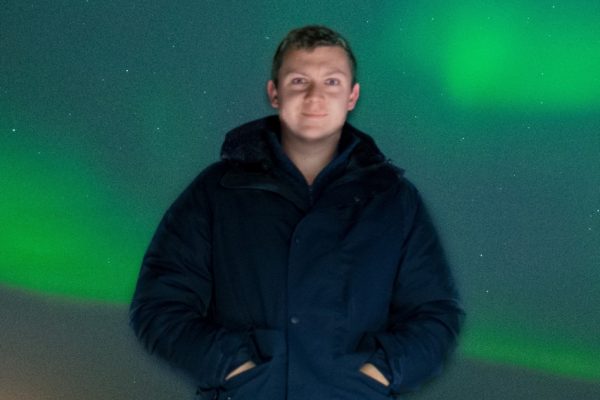
We caught up with aurora expert, Dr Nathan Case, ahead of his Big Bang session (The Northern Lights, Thursday 4 March, 5pm) to ask him about his fascination with these vast atmospheric light shows. Here’s what he said:
1) How have auroras affected people's ideas and beliefs down the ages?
The aurorae have formed part of the mythology of many ancient civilisations. From associations with a celestial dragons to messages and omens from the gods, the aurorae have affected people’s believes for millennia.
2) Put simply, what is an aurora?
An aurora the spectacular end result of a complex chain of events that starts with the Sun. Solar particles travel from the sun, interact with Earth’s magnetic field and enter into our atmosphere. These particles then collide with atmospheric gases, transferring energy, which causes them to give off light.
3) What's the fascination for you - it seems more than just a job?
It is! Space has always fascinated me. Looking up at a clear night sky and thinking of all those unfathomable number of stars and worlds that exist in the universe and our place in all of that is just mind boggling and awe inspiring.
4) About your job - are you effectively a space weather forecaster?
Not quite – space weather forecasters use real-time data from satellites to predict what the effects of the Sun’s variable activity might be. My work isn’t done in real-time but feeds in to our wider understanding of the Sun-Earth system.
5) Is there a reliable way to know when one might be visible - and how are they best observed?
Seeing an aurora is never guaranteed. Even when conditions are right, we still need to be in the right place at the right time. Oh and the terrestrial weather needs to play ball too! The aurorae can’t be seen through cloud cover.
Whilst most often visible during the winter months from places such as Iceland, Canada and Scandinavia; the aurorae can be seen from the UK too (mostly northern Scotland). The best way to know when an aurorae might be visible from the UK is to understand a little about space weather and follow the latest updates from space weather forecasters and aurora alert services such as AuroraWatch UK.
6) What can people do if they want to get involved with research and observations?
Reporting observations of the aurorae to the citizen science project “Aurorasaurus” is a fantastic way to help scientific research. In fact, recently, thanks to citizen scientists, we have recently been able to make the first detailed scientific observations of “STEVE” – a new type of aurora-like atmospheric phenomenon.
Dr Case is a Senior Research Associate in Space and Planetary Physics at Lancaster University and a member of the AuroraWatch UK team.